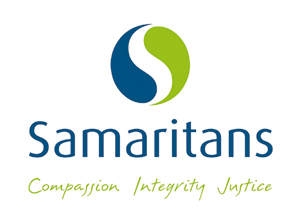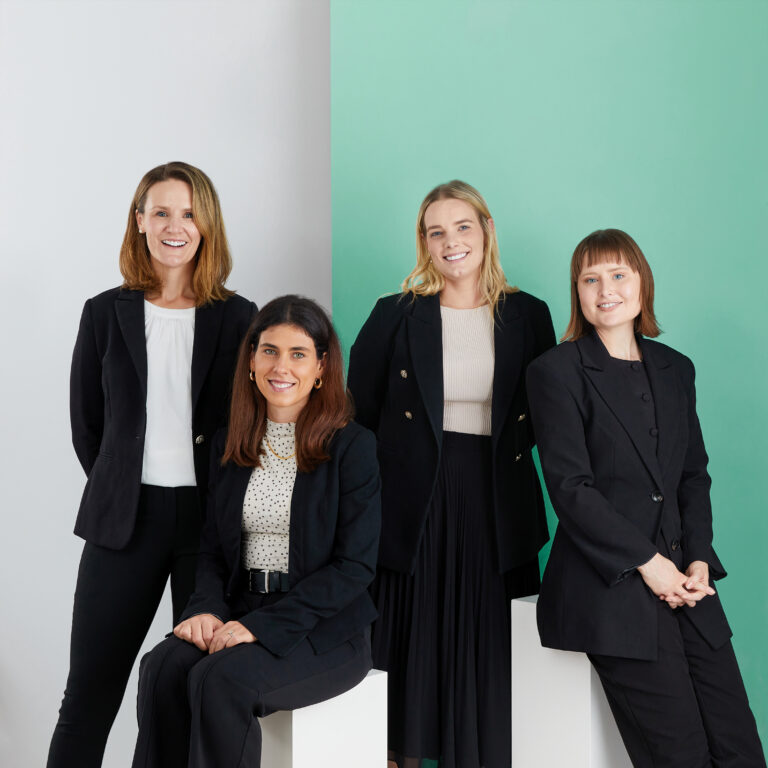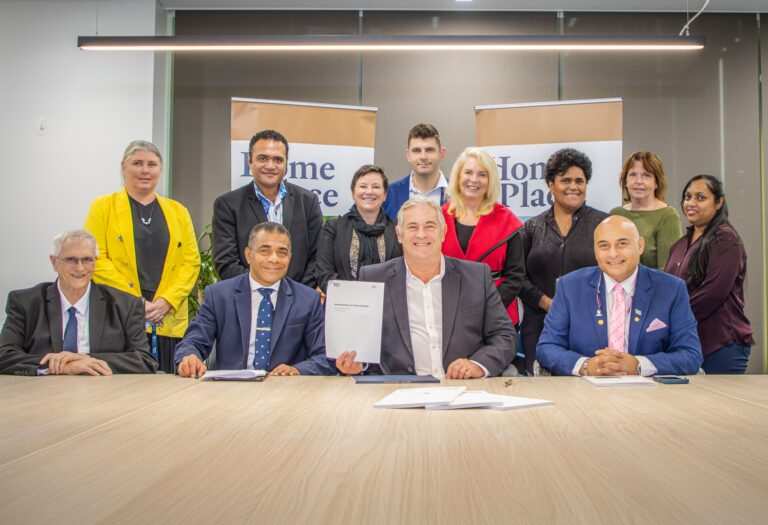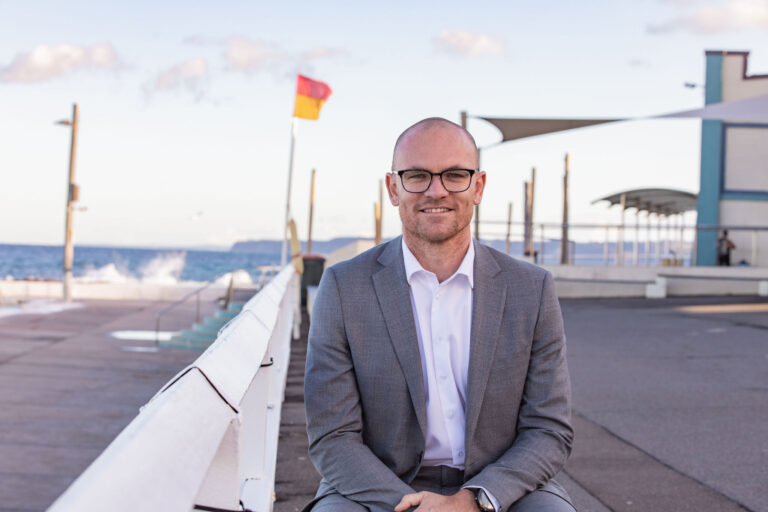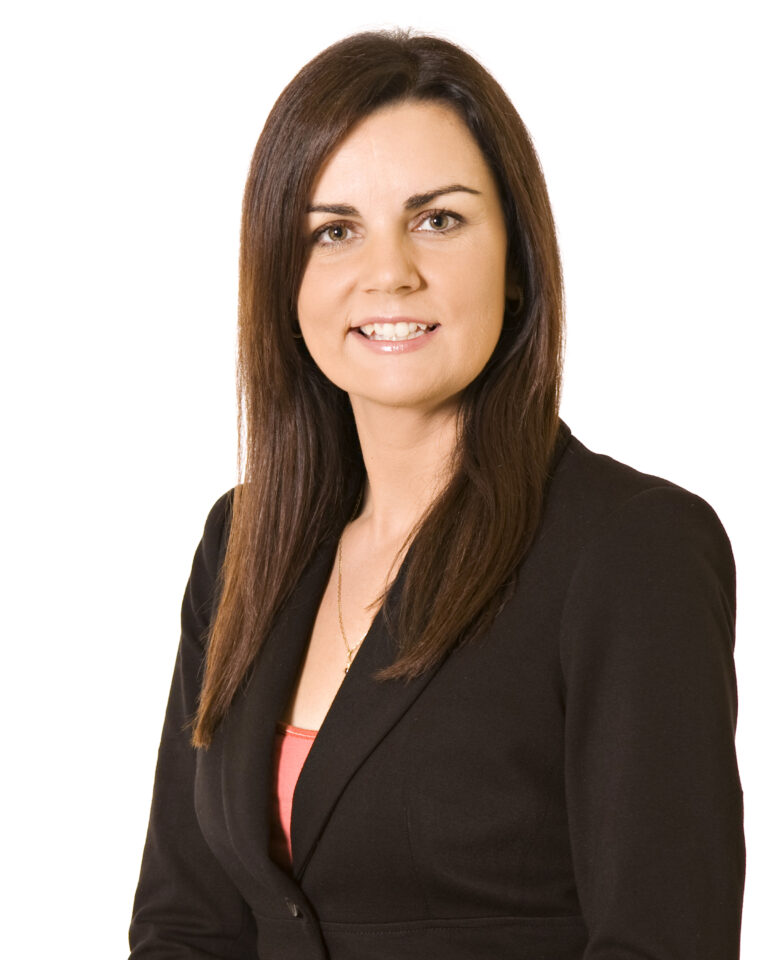With a focus on the value of collective impact, Brad strives to align the objectives and needs of diverse stakeholder groups to deliver mutually beneficial outcomes for these stakeholders and the broader community in each of the roles he has worked.
Brad’s appointment as the CEO of Samaritans sees him following his passion for ensuring that all members of the community, particularly those excluded or marginalised are given an opportunity to live fulfilling lives. This means not only supporting direct service delivery, but also promoting public debate about social justice and how to change the structures that drive disadvantage.
Every day, he pinches himself that he has the chance to follow this passion while living in one of the most dynamic and beautiful places in Australia.
- What makes a good leader?
I think there are two things that really characterise leadership for me, the first is curiosity, being able to ask the questions to question the assumptions, to dig beneath the organisation that you work for, and try and find different ways of doing things. Because I think fundamentally innovation is critical to any organisation.
I think then the second thing is humility, understanding that you aren’t the expert, and you need to surround yourself with the team of people who are the experts in what they do and trust those people to give you good advice.
I think it’s only when you have a strong team, a solid team of people quite often who are smarter than you, that allow you to actually deliver on the visions that you have for an organisation.
- What do you believe has shaped your leadership style?
Fundamentally coming from a small country town shapes who I am and how I think about myself every day. Coming from a small country town where you’re an integral part of the community, and what you get out of that community is what you put into that community.
I’ve taken that philosophy into the way I run organisations. I think of that organisation as a broader family of people. So, that’s a fundamental aspect of who I am. I think there are other things, I’ve had tremendous opportunity coming to the Hunter, I’ve been here now for 25 years and had the privilege to work with a huge range of people, whether that was from my early days in accounting at Lawler Partners, through the time at HMRI and now at Samaritans.
I’ve been shaped by the incredible leaders in our region who’ve been generous of their time, generous with their advice and willing to stop and have a cup of coffee and just give me ideas and thoughts or support when I’ve needed that.
Then if I take it to a global level, I reflect on an interview Obama once did where he talked about change, he talked about his time in as president of the US and how he saw making change. He said that when you need to turn a ship around two degrees by two degrees by two degrees, and it’s taking those small steps and having patience in that process that became critical.
So, those things I think shaped who I am, how I think about the days ahead of me and how I approach my work.
- What motivates and drives you?
My drive comes from wanting to leave the world in a better place than where I found it when I came into it. And that drives my work at the Samaritans every day.
We look at the people that come through our door that need support and needed advice, vulnerable people. And there’s victims of their circumstance, structural disadvantage drives their outcomes on a day-to-day.
So, if the work that I do and the teams that I lead and the organisations that we work with can slowly change the structural disadvantage for those people who are vulnerable, I feel we’ll have achieved something great. So, that gets me out of bed each day.
Look, I’ve been privileged to work across the private sector, to work within the health sector, to work with academics, now to work in the third sector. For me it’s the joining of the dots that will make that happen. If we can bring cross-sectoral conversations to bear influence government, influence policy, we’ll be in a far better place. And I’ve had people say that’s very idealistic, you’ll never do that.
I just reflect back on HMRI, the Hunter Medical Research Institute when it started was an idea that somebody had that we could make this region leaders in health and medical research.
There were many detractors who said, well, that’s a great noble thought, it’s never going to happen – and it did. And it did because a community came together, a community came together with its universities, it’s health district and said, “We’re going to make a change here.”
So when I look at that, when I look at what’s possible and what we’ve achieved in Hunter Medical Research Institute for this region I’m pretty bold and think anything’s possible.
- What is one action or task you ensure you incorporate into your diary each week?
Every week I look for time to intentionally connect with the services that we offer and the people that we support, whether that be taking my executive team out and meeting in different locations, whether that be file reviews, whether that be picking up the phone and talking to staff, whether that be dealing with feedback that we have from the people we support.
Finding that moment, and I do this several times a week, to really connect with the endpoint of what we’re about.
That just brings your decision-making right back to a real level to understand that the impact that you have affects somebody’s life, and when you do that it makes the stakes so much higher, and it makes the decision so much more important. So every week I find an opportunity to intentionally connect and listen.
- What local businessperson do you find inspiring?
That’s a quite an unfair question when I have such a rich choice of people to choose from. And as I mentioned before I’ve had the opportunity to work with many fine people over my career, particularly here in the Hunter.
Narrowing it down is quite difficult, one group of people I think who are unsung business people in this region are the leaders of major research groups, health and medical researchers who have to fight for every dollar they earn, they build careers, they build teams, they’re unsung heroes. And we never think of them particular as business people.
I think some of the local leaders in our public sector organisations, people like Michael who runs a $2 billion enterprise at Hunter New England Health with thousands of employees across the region, the State of Victoria. The size of the State of Victoria you have to look at people like that and go, “They’re tremendous business people.”
But if you asking me to narrow it down to one person, that person for me is Dawn McGlocklin, Dawn was the former managing director of Lawler Partners before she sold that business to Hudson.
Dawn actually recruited me to the Hunter 25 years ago, so I’ve got a special connection with her there.
Interestingly 15 years ago she recruited my partner to the Hunter, so she’s responsible for my personal life. But also leading me into working in the third sector and working with the Samaritans, it was Dawn who called me one day and said, “Let’s have a chat about homeless youth in our region and what we can do about that.”
That opened a broad conversation for me about my role in this community and what we could do. And I traced that back to Dawn and her work.
And as a businessperson she was a pioneer in her field of recruitment, she was a pioneer for women in the Hunter, and led an enterprise at the same time a huge number of women were emerging in the Hunter as leaders. And I think she’s left a legacy for this region that we should celebrate and be proud of.


